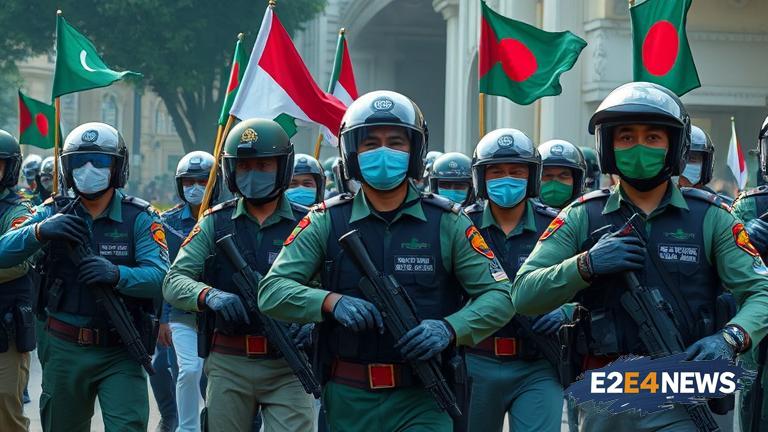Bangladesh has been experiencing a wave of anti-government protests in recent weeks, with demonstrators calling for reforms and greater accountability from the government. The protests have been largely peaceful, but the police response has been heavy-handed, with reports of tear gas, baton charges, and mass arrests. The latest crackdown has seen several high-profile activists and opposition leaders detained, sparking outrage and condemnation from human rights groups. The government has defended its actions, citing concerns over public safety and the need to maintain order. However, critics argue that the crackdown is an attempt to stifle dissent and silence opposition voices. The protests have been fueled by a range of grievances, including corruption, inequality, and a lack of transparency in government. Many Bangladeshis are also frustrated with the government’s handling of the economy, which has been struggling in recent years. The country’s garment industry, which is a major driver of the economy, has been hit hard by the COVID-19 pandemic, leading to widespread job losses and economic hardship. The government has promised to take steps to address these issues, but many Bangladeshis are skeptical, citing a lack of progress and a failure to deliver on previous promises. The international community has also expressed concern over the crackdown, with the United Nations and other organizations calling for restraint and respect for human rights. The European Union has also weighed in, urging the government to respect the rights of protesters and to engage in dialogue with opposition groups. Despite the challenges, many Bangladeshis remain committed to the cause of reform and are vowing to continue their protests, even in the face of government repression. The situation remains tense, with many fearing further violence and unrest in the coming days. The government has announced plans to increase security measures, including the deployment of additional police and paramilitary units. However, this has only added to the sense of unease, with many fearing that the situation could escalate further. As the situation continues to unfold, it remains to be seen how the government will respond to the protests and whether it will be willing to engage in meaningful dialogue with opposition groups.
